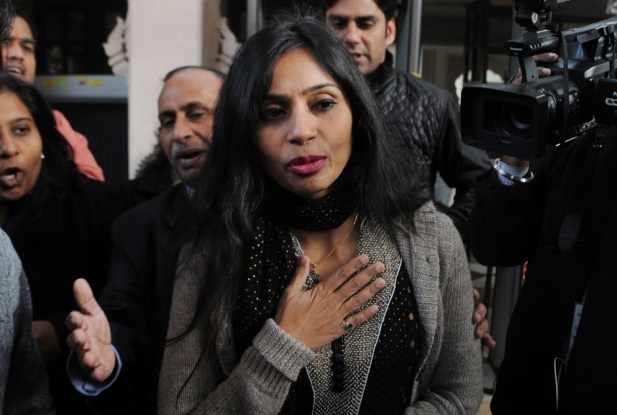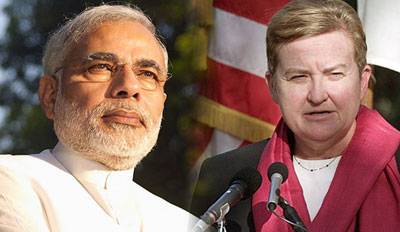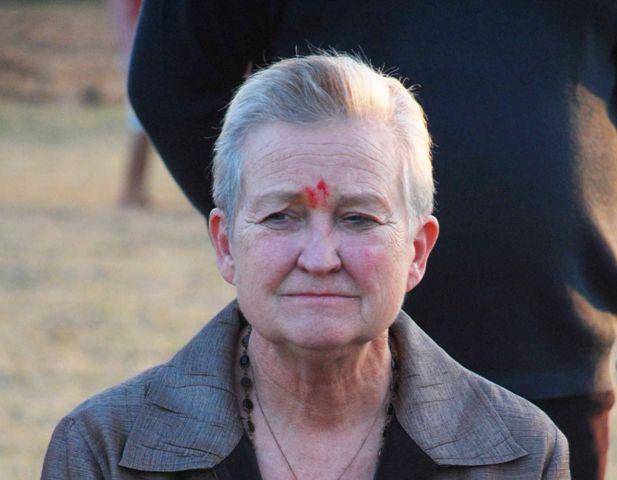US AMBASSADOR RESIGNS, STATE DEPT. DENIES BLOWBACK FROM KHOBRAGADE AFFAIR
(Agencies and TGC) – In an surprising development for diplomatic circles, U.S. ambassador to India has resigned and will return to the United States after less than two years, with relations between the world’s biggest democracies at their lowest ebb in more than a decade
U.S. State Department spokeswoman Marie Harf denied that Nancy Powell’s resignation was related to the arrest of a junior Indian diplomat in the United States in December.
The reality is very different according to well placed sources. It was a series of diplomatic cables sent on behalf of US ambassador Nancy Powell that led to her being forced to resign by the US State Department. Evidently, mandarins and law makers who are responsible for the United States foreign policy were loathe to be weighted down by the debilitating consequences of Ms. Powell’s troubled tenure as Ambassador, for doing business with a new government in New Delhi.
Sinking Ms. Powell’s ‘passage to India’ were cables authorized by her during the row over diplomat Devyani Khobragade arrest, which described the Indian position as “weak” and that it will not escalate the matter as the country was in an election mode. The cables reflect poor knowledge and understanding of the region as the exact opposite happened. With elections imminent elections, Delhi wanted to use rather than have to deal with unprecedented anger expressed by the electorate over the affair, adopting, as consequence, a response which dipped the relationship to an all time low.
Ms. Powell is a career diplomat who has held several postings in South Asia, including head of mission in Pakstan, and became the ambassador to India in 2012, It is possible that her appraisal of Indian politicians comes from the view in Pakistan and West Asia that the political leadership is weak. Observers had commented that she did not quite fit in Delhi diplomatic circles, and the Indian government never quite got their feelings of being ill at ease with the choice; this was only exacerbated by the arrest and strip search of mid-level consular officer, Devyani Khobragade in New York, last year.
Last month, she met Narendra Modi, the opposition candidate who is favourite to become India’s next prime minister after elections that end in May.
The meeting ended a decade-long U.S. boycott of Modi and brought Washington’s policy in line with other major powers that had shunned him because of religious riots occurring on his watch, but have now warmed to a man who has presided over strong and quick economic growth in his home state of Gujarat.
Strategically, the United States sees India as a natural ally on a range of issues and a potential counterbalance to China in Asia. Trade in goods was $63.7 billion last year, and U.S. vice-president Joseph Biden last year called for that to grow to half a trillion dollars in five years.
But trade relations were deteriorating even before the diplomatic row.

Devyani Khobragade returning home after being arrested in New York.
In India’s eyes, Powell’s tenure never recovered from the Khobragade affair in which, clearly, a hand from the US Mission in New Delhi was active, particularly in the issuance of “T-Visas” to the family members of the complainant against Khobragade. T-Visas are issued to victims of Human Trafficking. That the Mission would view Khobragade’s maid, an Indian Citizen against whom an arrest warrant was issued in India, shocked Ministry of External Affairs. Indian took retaliatory measures against the embassy, including removing the ambassador’s exemption from airport security searches.
Many Indian officials felt Ms. Powell had mishandled the case, which was related to the low wages that Mrs. Khobragade paid a domestic worker, and whether or not Mrs. Khobragade enjoyed diplomatic immunity. The arrest was seen by both the Indian government and Mr. Modi as U.S. hypocrisy and arrogance.
In response, India clamped down on alleged legal infractions by the embassy, including the visa status of teachers at the American Embassy School, an institution central to the lives of many expatriate employees of U.S. corporations in Delhi.

Narendra Modi and Nancy Powell met after two months of delays.
NOT TAKEN SERIOUSLY
Powell’s meeting with Modi was delayed by two months because of the row, an aide to the candidate told Reuters, hardly a vote of confidence in her ability to mediate relations between the World’s most powerful democracy and the most populous one.
“I had heard she wasn’t really getting meetings with government officials after Khobragade. And that’s an important part of the job. My sense is that would likely only continue with a new government,” said a U.S. congressional aide who asked not to be named because he was not authorized to speak.
However, Harf told a regular State Department briefing: “It is in no way related to any tension, any recent situations … This is the end of a distinguished 37-year career. I think after 37 years she deserves to retire.”
During the fallout of the row over Ms. Khobragade’s arrest, officials in New Delhi said India had bristled at Ms. Powell as soon as she was appointed in 2012, especially as she was not seen as close to The White House, despite her decades of experience in South Asia.
In a conversation with Reuters in January, one official close to Prime Minister Manmohan Singh described Powell as a “lemon” – a comment reflecting concerns in India that Obama was not serious about a friendship he once described as “a defining relationship of the 21st century”.
The statement said Powell would return to the United States before the end of May, which is the deadline for a new Indian government to be formed.
The United States had revoked Mr. Modi’s travel visa following allegations he did not do enough to prevent at least 1,000 deaths during a spasm of Hindu-Muslim violence in 2002 in the state that he governs. And, while a new visa has not yet been granted (Mr. Modi has evidently not applied for one) but Nisha Biswal, the U.S. assistant secretary for South and Central Asian Affairs, in a statement smacking of the obvious, has said he would be welcome to visit the United States if he became prime minister. The point in stating the obvious, perhaps, was to reassure Indians that any perceived transgressions would be regarded as insignificant should Mr. Modi assume the ultimate seat of power at the centre.
The Unites States is being seen as wanting to clean house prior to the anticipated General elections in India, which will likely take place in April.
 The Global Calcuttan Magazine
The Global Calcuttan Magazine 